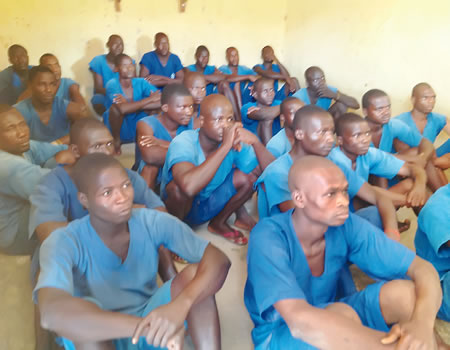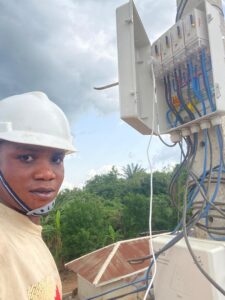Discriminatory policies against women in physiotherapy need to be addressed —Ayo-Ogunseye
[ad_1]
In this interview by SADE OGUNTOLA, the chairperson of the Forum of Women in Physiotherapy in Nigeria, Dr Oyenike Ayo-Ogunseye, says that women physiotherapists require appropriate workplace policies and equity in the health sector.
Can we have an idea of the number of women in physiotherapy in Nigeria? What is the ratio women to men; what role do they have in the healthcare delivery system?
Physiotherapy is used to preserve, enhance or restore movement and restore movement and physical function impaired or threatened by disease, injury or disability using therapeutic exercises, physical modalities (such as massage and electrotherapy), assistive devices, patient education and training. Worldwide, statistics have shown that we have more female physiotherapists than male physiotherapists. But in Nigeria, we have 40 percent of physiotherapists being females.
Now, individuals suffer pain for different reasons and women are no exceptions to pain and conditions that give chronic pain. Women experience low back pain, menstrual pain, pain from fertility-related conditions like endometriosis and so on. Physiotherapists deal with the management of pain a lot using different treatment modalities.
What are the different aspects of physiotherapy? Is there any particular aspect that targets the care of women in particular?
We have women’s health specialty. This handles diseases that are related to women at different stages of their life. For instance, in the course of child delivery due to the positioning of the baby, a woman may end up with Obstetric Neuropraxia (problems with ambulation; she cannot walk because she has lost the function of the limbs). But with physiotherapy, she can be helped to regain the lost functions in her limb. Other conditions this speciality handles include urinary and fecal incontinence, pain during sex and pelvic organ prolapse. Other physiotherapy specialties include: peadiatrics, sports, geriatrics, neurology& mental health, neurosurgery, orthopedic, critical care and cardiopulmonary.
Can you then assess women’s access to physiotherapy in Nigeria? Is enough being done for women?
Physiotherapy in Nigeria is generally accessible to all: both male and female. However, physiotherapy practice in Nigeria has its shortcomings and women’s health is not totally immune to some of these shortcomings. For instance, as regards women’s health, some cultural practices and beliefs prevent women from seeking healthcare services. In my opinion, based on my experience in clinical practice, women are generally reluctant to expose their privacy irrespective of the practitioner managing them, and are also conscious of the environment. Therefore, they would rather suffer than accessing the care in order to protect their privacy.
In the midst of unequal access to innovations and technology education, are there gaps or challenges to equity for women physiotherapists?
Certainly, there are gaps. The COVID-19 pandemic further opened up the role of technology in health care provision and training. Now, we are talking more about telemedicine, tele-rehabilitation and use of ICT in training. So, a woman without adequate knowledge of technology will have challenges in adapting telemedicine in patient care. When it comes to the use of gadgets, they often think first of considering the men. So, in bridging the gap, women need to be ICT-literate and a lot of training to assist women update their knowledge and skills on ICT should be encouraged.
What can Nigeria do otherwise to ensure equity for female physiotherapists in the health sector?
One is to create awareness and then give room for improvement. There was a time they brought in a test of computer knowledge in a promotion examination in the civil service; it was something that helped everybody to sit up on the knowledge. Now, for health information, electronic systems are being introduced even in government facilities. Training on this should not be gender biased. Therefore all should access to it. In the recruitment into the physiotherapy profession and admission of students for physiotherapy training into the university, gender needs to be considered. Now we are having more men than women in physiotherapy, especially at the leadership levels of the profession nationwide. The challenge now is to encourage women to move up in leadership, and this we can foster by training.
So, what would you encourage junior female physiotherapists to do to overcome some of these challenges they face in the course of their work?
They need self-confidence and skill. They must not fail to acquire skills in any specialty of their choice. There is no aspect of physiotherapy that any woman cannot work. They also need to have mentors who have gone through the path to guide them along the way, especially at the early career stage, so as to have a work-life balance.
In the midst of unequal access to innovations and technology education and opportunities for women physiotherapists, what are some of women physiotherapists’ achievements and contributions to national development?
Education is one of our contributions; any nation that has access to information will develop. We educate and sensitize the public on the role of physiotherapy generally in health care. Part of what we do is to generate data to develop policies in the health sector. Currently, we are working on generating some data on female representation in managerial and leadership level in the physiotherapy profession and I believe that the outcome of that exercise when presented to the government and our regulating body will help in developing policies that will bring about further development of the profession in Nigeria. Also, we are creating a good image of the profession and women physiotherapists are playing a leading role in the profession in Africa and even the world. Currently, the president of the Nigerian Society of Physiotherapy is a female and she has also been nominated as a member of the physiotherapy world.
Many women professionals are coming out to say NO to many things even as the International Women’s Day is celebrated globally. What are those things that your group will like to say NO to in Nigeria?
We say no to marginalisation and discrimination of women therapists. We have instances where you want to see a patient and the person looks at you from head to toe and asks if the female physiotherapist can even lift him. I have personally experienced that before and I just smiled that it is not about size but skills.
We appreciate the government for putting in place a six-month maternity leave now in the civil service. It will certainly make it easy for the women to fly as professionals. But we are saying NO to policies that do not support our gender carrying out our roles as women and home builders. Initially, when I started this profession, when you were an intern physiotherapist, you were not permitted to get married or to even have a baby. That has changed, but things can still be better. In addition, we say NO to discriminatory employment practices and disparity in pay.
What is your advice to women in Nigeria regarding physiotherapy care and what benefits they stand to gain to better their health?
I will say to women that physiotherapy is there for you at every stage of your life. As a young child, physiotherapy is there; as a young lady, physiotherapy care is available. Even at preconception care, physiotherapy is there for you. In your pregnancy, physiotherapy is their maintaining life. In delivery and labour room, physiotherapy has major role to play in helping with labour pains, this has not been fully accessed in this country.
Also, physiotherapy has a role to play postpartum; it can help the woman to go back to her normal self. Then as the woman grow in age, menopause setting in. There are lots of issues that come with pre-menopause and also post-menopause. Women when post-menopausal are prone to fall and can sustain fractures. Physiotherapy can help to prevent all these things. Basically, there is nobody that is too well or too sick for physiotherapy. Physiotherapy adds years to life and life to years.
[ad_2]














Post Comment